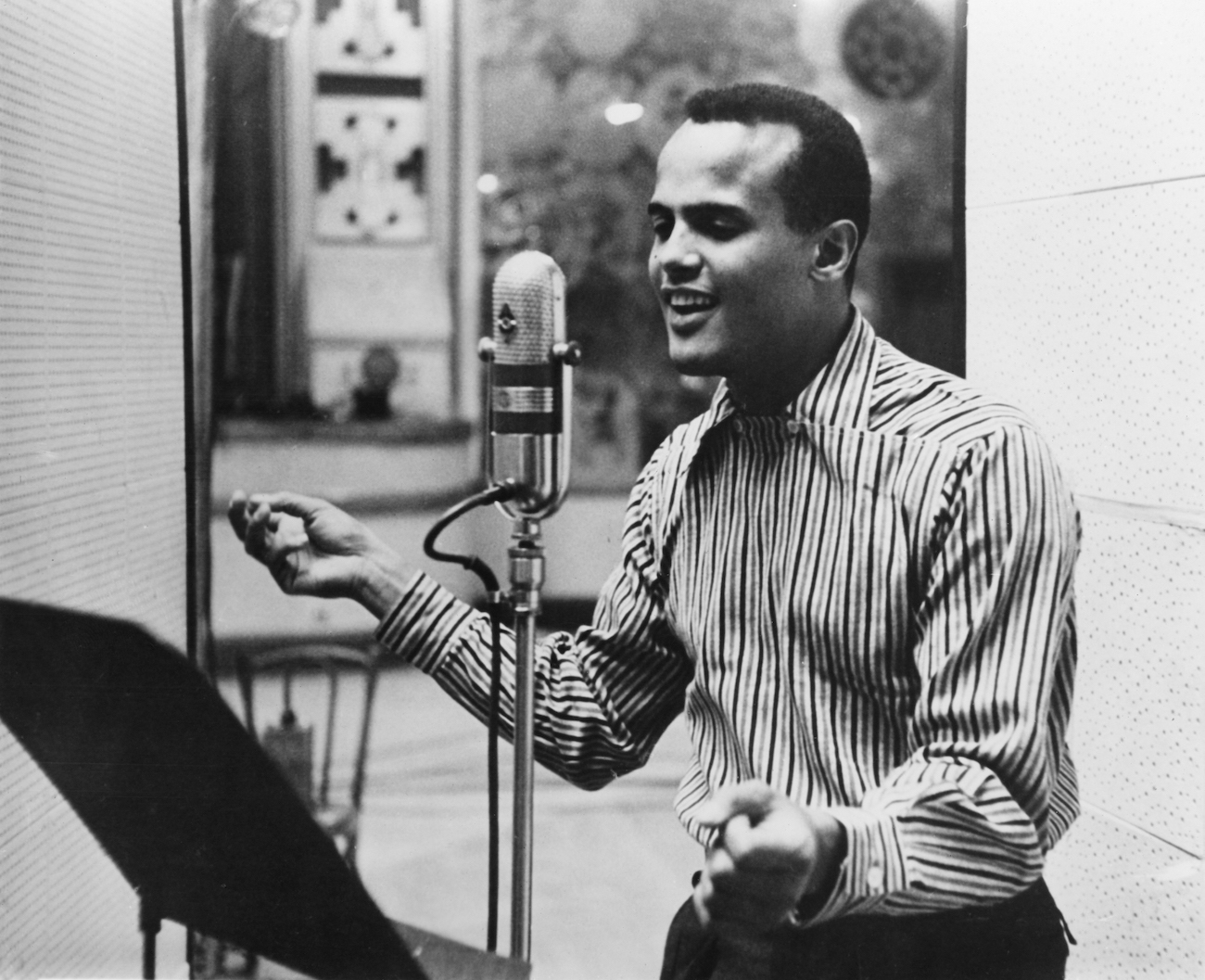What Does Harry Belafonte Think About His Songs Being in ‘Beetlejuice’?
Tim Burton’s Beetlejuice is a cult classic and a Halloween staple. But the creepy film would be nothing without the songs of Harry Belafonte, the “King of Calypso.” Before their untimely deaths, what would the Maitlands have danced to other than “Sweetheart from Venezuala”? Which song would Beetlejuice play while making the Deetz’s and their company dance and sing besides “Banana Boat (Day-O)”? More importantly, which song better describes Lydia’s victory over Beetlejuice himself and passing all her tests other than Belafonte’s “Jump in the Line”? Only Belafonte’s music can fill these scenes.
Now, fans only have to hear Belafonte’s echoed “Day-O!” to think of Beetlejuice. They’ve grown synonymous with one another, and Belafonte can’t help but feel flattered.

Harry Belafonte felt flattered when David Geffen asked him to use his songs in ‘Beetlejuice’
Belafonte received a call from David Geffen in 1986 or early 1987. According to Pitchfork, Geffen had “a rather unusual request” on behalf of his production studio, the Geffen Film Company. “Could he use Belafonte’s music in a dark comedy about two ghosts who hire a crass ‘freelance bio-exorcist’ to rid their home of insufferable art snobs?” Belafonte couldn’t completely wrap his brain around the film’s plot, but he was “intrigued” and “flattered.”
“I never had a request like that before,” Belafonte told Pitchfork. “We talked briefly. I liked the idea of Beetlejuice. I liked him. And I agreed to do it.” Pitchfork couldn’t reach Geffen himself, but he did reach out through a representative to say that he remembers such a phone call.
“What was particularly attractive was that he wanted to use my voice,” Belafonte adds. Burton and Geffen could have used one of the many covers of Belafonte’s 1956 hit “Banana Boat (Day-O).” However, they wanted Belafonte’s original version instead.
“Belafonte could not have known he had just greenlighted one of cinema’s most memorable and appealingly bizarre musical numbers ever to incorporate a pre-existing pop song,” Pitchfork wrote.
Beetlejuice’s original dinner party song was The Ink Spots’ 1939 hit ‘If I Didn’t Care’
Beetlejuice‘s original screenplay by Michael McDowell was a lot darker than what audiences have come to know. In the original dinner party scene, a guest spilled a glass of wine on an ornate floral rug. Vines sprouted from the rug and wrapped around all of the guests.
Larry Wilson, who wrote the original story with McDowell, said it was a good idea, but it needed something more. The person who added a sing-along to the scene was screenwriter Warren Skaaren, who rewrote Beetlejuice‘s screenplay later. He wanted The Ink Spot’ 1939 hit “If I Didn’t Care” for the dinner party scene. Skaaren also suggested “When a Man Loves a Woman” for the film’s finale scene.
According to Jeffrey Jones (Charles Deetz), it was Catherine O’Hara (Delia Deetz) who suggested calypso “would bring more energy to the scene.” That’s when Jones named the few calypso tunes he knew, including Belafonte’s “Banana Boat (Day-O).” Burton liked the sound of Belafonte’s song, so Geffen called Belafonte for permission, and they went and shot the scene. The rest is written in undead history.
The history of ‘Banana Boat (Day-O)’ goes back a century
The origins of “Banana Boat (Day-O)” go back almost a century. According to historians, the song’s line “Daylight come, and me wanna go home” comes from an old line that Jamaican banana workers in the early 1900s used to sing while working overnight.
Only Belafonte’s rendition made it to the top and dubbed him the “King of Calypso.” Later the song would crop up here and there. Belafonte even performed it on The Muppets Show in 1978. It wasn’t until the mid-1980s that Beetlejuice brought the song back from the dead.
Belafonte might not have recorded his hits with ghosts in mind, but that’s all fans can think of when they hear his music now. Having some of your songs in a cult classic couldn’t have hurt Belafonte’s royalty checks, either. Do you think there’s a guideline written in The Handbook For The Recently Deceased that you have to listen to Harry Belafonte in the afterlife?


